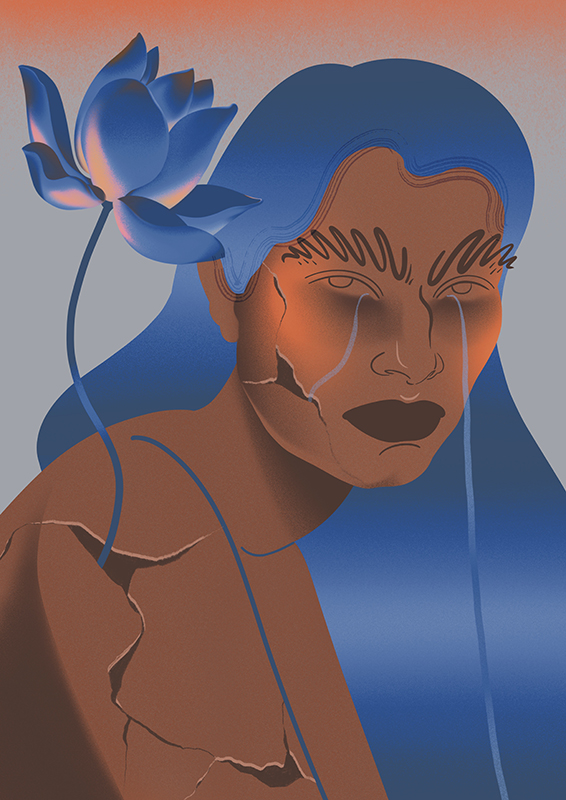- 200 years
- Study
- International
- Business and employers
- Research
- About us
Findings from pioneering study have informed a new model to end stigma and improve services

Improvements to alcohol support services needed for South Asian women, says report
Improvements to support services for South Asian women with alcohol problems are vital to ensure they have better access to more tailored support and that long-standing cultural taboos are broken.
In the first study of its kind, findings from Manchester Metropolitan University, supported by Alcohol Change UK, have resulted in a new model of support to address the lack of trauma-informed and culturally specific care currently available for South Asian women with problematic alcohol use.
The research team examined the experiences of South Asian women who use or have used alcohol, exploring their route into problematic use and their engagement with support.
The report, which was authored by members of the Substance Use and Associated Behaviours (SUAB) research group at Manchester Metropolitan University and funded by Alcohol Change UK, recommends the need for more culturally literate and gender sensitive support services.
It addresses how cultural norms of honour, modesty and chastity can be entrenched for females in South Asian populations, and how this can lead to shame and stigma if women develop alcohol dependency, which can act as a barrier to seeking help.
Sarah Galvani, Professor of Social Research and Substance Use at Manchester Met, said: “There are many taboos about women’s alcohol use in South Asian communities. The women we spoke to were dealing with trauma from abusive experiences as well as the shame, stigma and condemnation relating to their alcohol use. This makes help seeking almost impossible.
“This was reflected in the challenges we faced in recruiting women to the study and the fact that in 2023 this is the first study of its kind. It simply isn’t acknowledged. We repeatedly heard how women were kept quiet through concerns about family and community honour. We are failing these women and must do better.”
There are many taboos about women’s alcohol use in South Asian communities. The women we spoke to were dealing with trauma from abusive experiences as well as the shame, stigma and condemnation relating to their alcohol use.
Mark Leyshon, Senior Research and Policy Manager at Alcohol Change UK, added: “These new findings provide a unique insight into the drinking experiences of South Asian women and their encounters with mainstream services when their alcohol use has become problematic.
“One of the key learnings is that such services become more sensitive to the cultural needs of this community of women and recognise the ongoing barriers of stigma and shame that exist and which consequently delay or prevent members of this community from seeking the help and support they deserve.”
The team conducted a comprehensive review of existing research, alongside interviews with 18 South Asian women who are in recovery, focus groups with 29 women from the wider South Asian communities, and interviews with seven practitioners from specialist ethnic minority alcohol services.
Researchers found that the cultural expectations of women’s role in the family and community, and control from male members of the family added to a sense of shame and stigma felt by South Asian women when their alcohol use became problematic.

Some women hid their alcohol use due to this shame and stigma and mixed support from families hindered their access to alcohol support. One interviewee commented: “…all that anyone sees is the alcohol. Our communities, all they see is ‘you drink’ and that – you’re weak. And the judgement. Well, that’s not gonna solve [anything].”
For those who did seek support from a range of services, they spoke about often being the only South Asian woman in the treatment services or groups.
More than half of focus group participants stated that they knew people who drank heavily or had problems relating to their alcohol use and highlighted a gendered bias in attitude towards alcohol consumption among women compared with men.
Participants spoke about how women were bringing dishonour to their communities through alcohol consumption, and how they weren’t aware of services for South Asian women in their communities if they, or another woman they knew needed help with their alcohol use.
Practitioners described a complete lack of service provision for both men and women from minority or migrant communities in the wider alcohol service landscape and difficulties in engaging South Asian women with low numbers engaging services despite outreach efforts.
Recommendations include discrete, separate services in local communities for South Asian women seeking alcohol support to ensure their needs are front and centre.
Improved knowledge and education within families and communities about alcohol (and other drugs) will also counter the stigma and enable more people to seek support for themselves or others.
Researchers have also developed new models of alcohol support to centre on the needs of South Asian women, a self-assessment tool to improve existing services and a pathway for developing service provision.
A accompanying book Alcohol, Izzat and me: South Asian women in recovery has been published which centres on the lives of 18 women from South Asian communities in the UK.